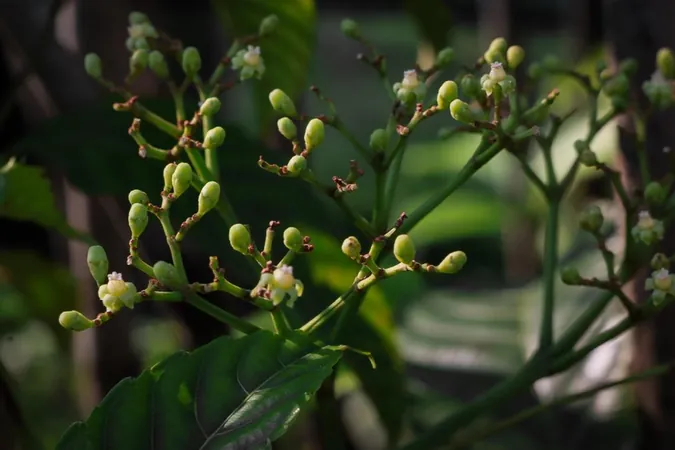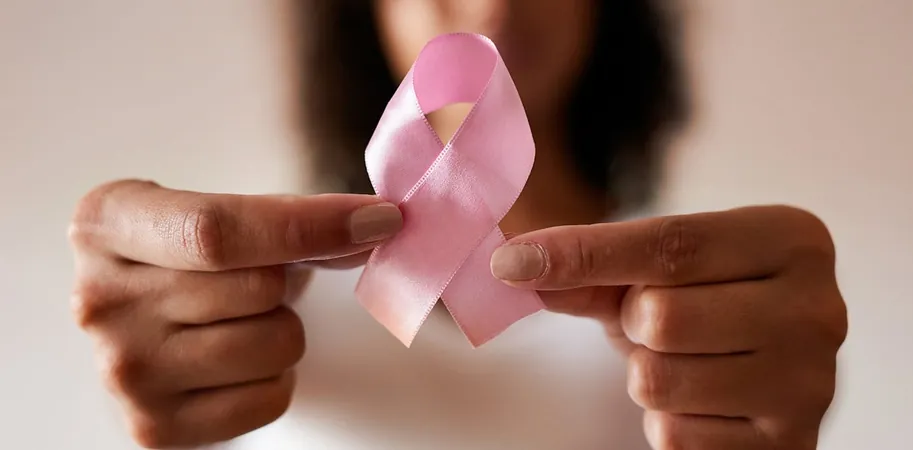
Unlocking Nature’s Secrets: Singapore Researchers Tap Into Plants for Cancer Treatment
2025-09-09
Author: Ming
Harnessing Nature's Pharmacy for Cancer Therapy
In a groundbreaking effort, Singapore's researchers are diving into the world of tropical plants known for their traditional use among cancer patients, aiming to unveil their potential as cutting-edge cancer treatments. Their focus is on the bandicoot berry, Sabah snake grass, and moringa, which are among 100 plant species being meticulously examined.
The Quest for Chemical X
Nestled within the genomic garden at Singapore General Hospital (SGH), set up by the SingHealth Duke-NUS Institute of Biodiversity Medicine (BD-Med), these plants have already undergone genomic sequencing. Researchers are screening them against ten types of cancer cell lines—including those from breast, lung, and liver cancers—to pinpoint their possible anti-cancer effects.
Director Teh Bin Tean emphasizes that while each of these plants holds hundreds of chemicals, isolating the specific ‘chemical X’ responsible for fighting cancer is crucial. The process, however, is anything but swift—taking an estimated five to six years to translate these findings into clinical trials.
Revolutionizing Research with Technology
In an innovative twist, BD-Med is embracing artificial intelligence in 2024 to expedite the identification of chemical compounds that could revolutionize cancer treatment.
Building on Promising Past Studies
Previous research highlights the potential of these plants. A study from 2018 at the National University of Singapore revealed that extracts from the bandicoot berry inhibited the growth of multiple cancer cell lines. Professor Koh Hwee Ling, who headlined that research, is now collaborating with BD-Med to explore its effects on ovarian and bile duct cancers.
Exploring Aromatherapy in Cancer Care
Meanwhile, BD-Med is not resting on its laurels; they’re experimenting with the use of essential oils from scented plants to help alleviate anxiety in breast cancer patients undergoing radiotherapy—a testament to their holistic approach to cancer care.
Food as Medicine: The Future of Nutritional Research
Beyond just plants for treatment, BD-Med is pioneering a ‘food as medicine’ philosophy. Their unique aquaponics farm, thriving on the former helicopter pad of SGH, cultivates vegetables while also functioning as a research hub. This closed-loop system not only conserves water but also produces nutrient-dense crops essential for patient health.
Plans are underway to expand production, supplying fresh produce to SGH’s central kitchen, with an eye on exploring tailored nutritional approaches for various health conditions.
Investigating the Health Benefits of Durian
Durian, known for its polarizing taste, is currently the subject of a nutrition study aiming to assess its effects on cholesterol levels and blood sugar. Preliminary findings are expected by 2026.
Future Horizons: Expanding Research and Gardens
As BD-Med continues its ambitious agenda, it plans to establish more gardens at hospitals across Singapore, starting with Sengkang General Hospital. The institute is determined to catalog and sequence 1,000 plant species from Southeast Asia, paving a promising path for the future of natural cancer therapies.
With a blend of traditional knowledge and modern science, Singapore is not just aiming to fight cancer but also redefine how we perceive food, health, and medicine.





 Brasil (PT)
Brasil (PT)
 Canada (EN)
Canada (EN)
 Chile (ES)
Chile (ES)
 Česko (CS)
Česko (CS)
 대한민국 (KO)
대한민국 (KO)
 España (ES)
España (ES)
 France (FR)
France (FR)
 Hong Kong (EN)
Hong Kong (EN)
 Italia (IT)
Italia (IT)
 日本 (JA)
日本 (JA)
 Magyarország (HU)
Magyarország (HU)
 Norge (NO)
Norge (NO)
 Polska (PL)
Polska (PL)
 Schweiz (DE)
Schweiz (DE)
 Singapore (EN)
Singapore (EN)
 Sverige (SV)
Sverige (SV)
 Suomi (FI)
Suomi (FI)
 Türkiye (TR)
Türkiye (TR)
 الإمارات العربية المتحدة (AR)
الإمارات العربية المتحدة (AR)